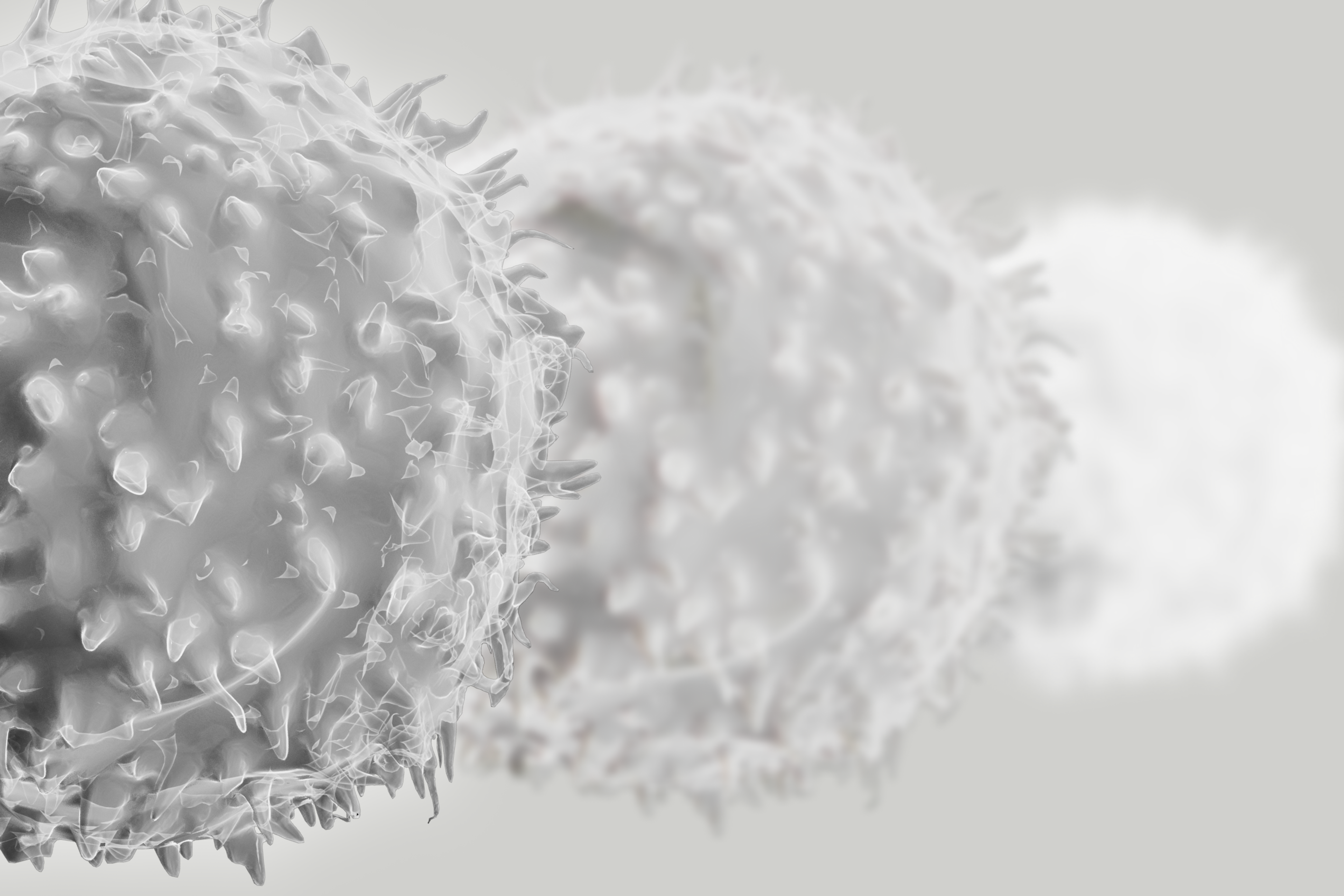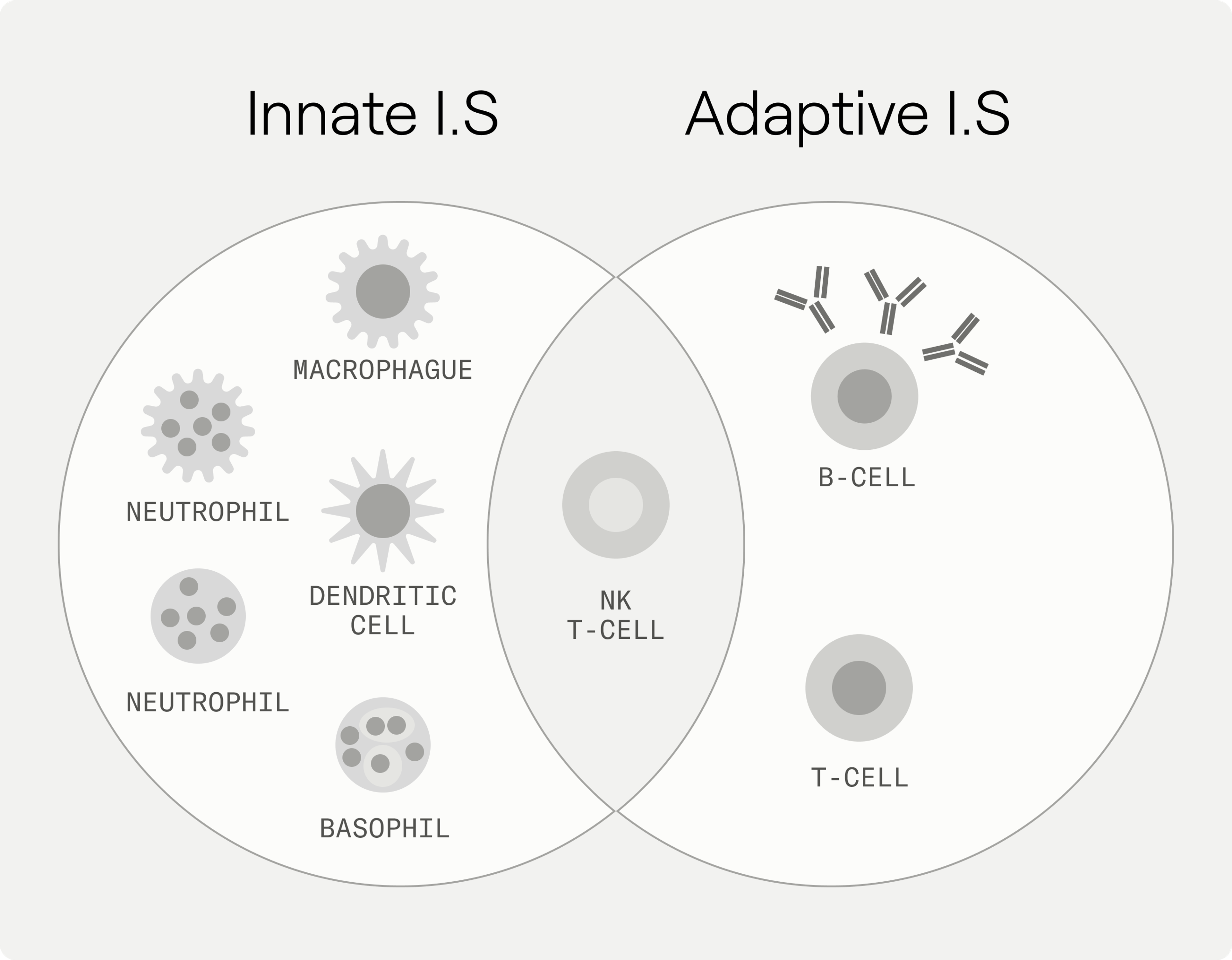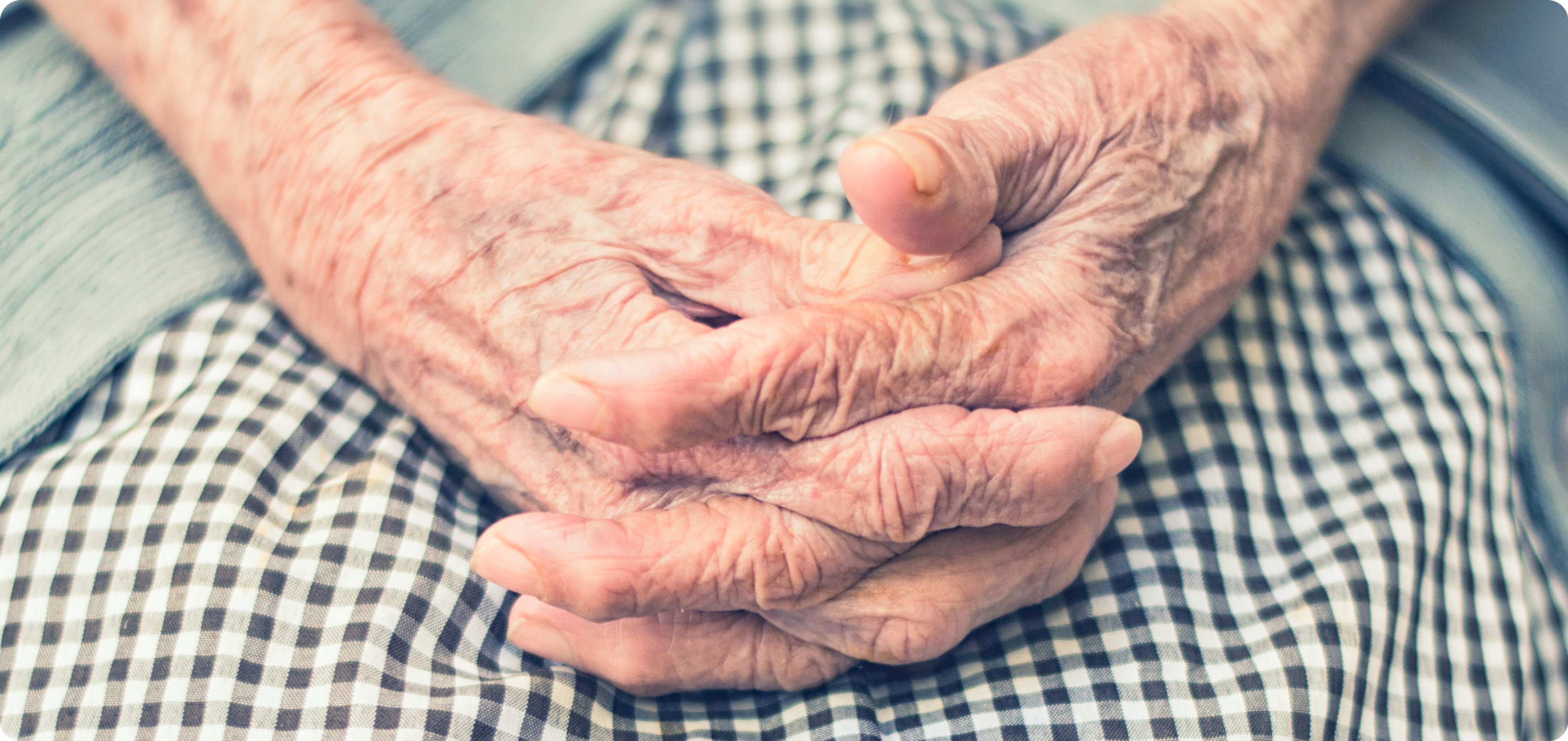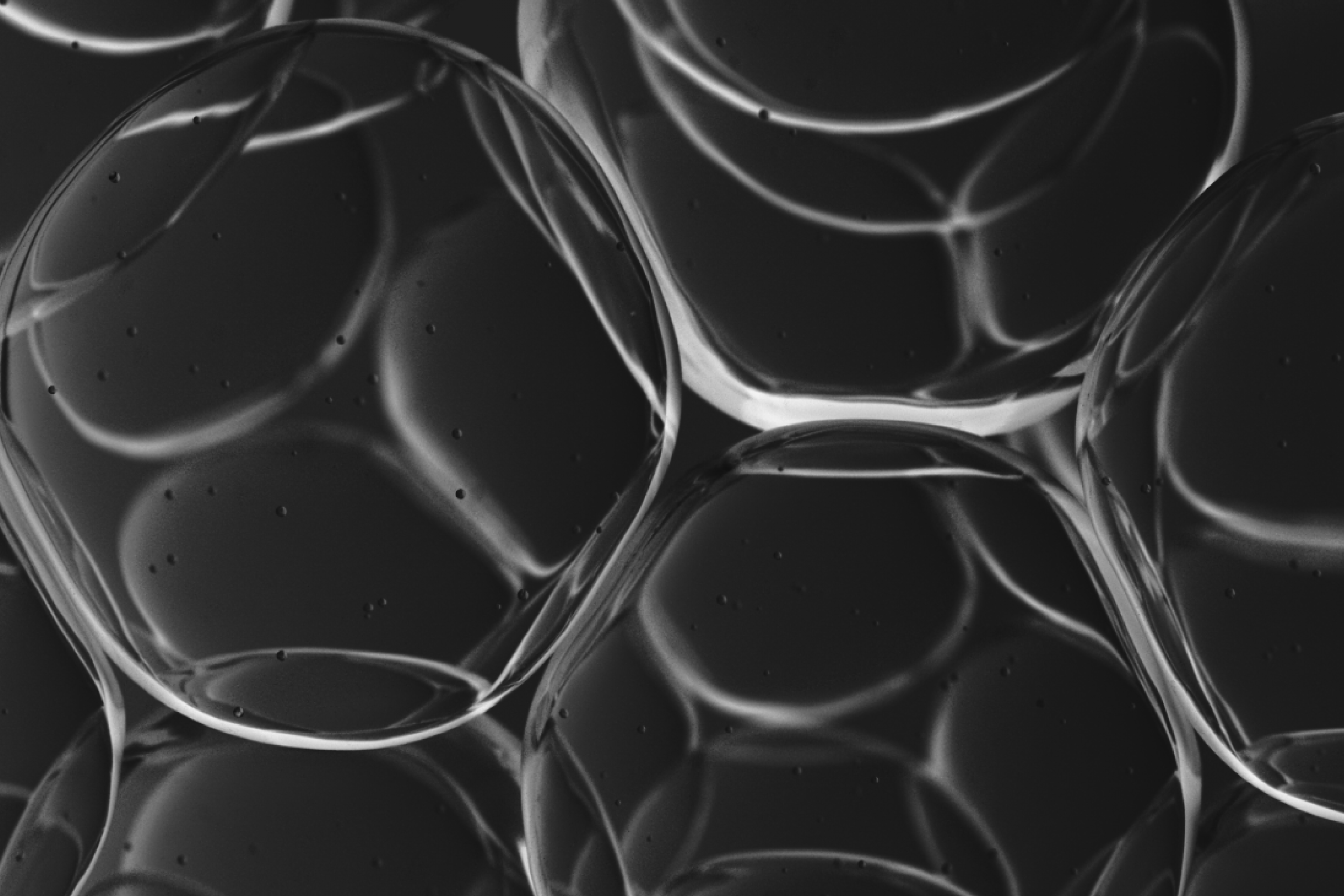Immune aging: understanding the dynamics of immunosenescence
Unraveling immunosenescence: strategies for understanding and combating age-related decline in the function of the immune system.

March 22, 2024
8 min read
As we age, our body goes through profound biological changes, including changes that impact the immune system. Many research studies have explored the links between aging and immunity, and the immunological theory of aging posits that changes in the immune response are a significant contributor to aging.[1]
Read on to learn more about how our immune system changes with age and strategies we can utilize to bolster our immune health.
What is immunosenescence?
Immune dysfunction that occurs with age is known as immunosenescence. Immunosenescence refers to the gradual deterioration of the immune system brought on by natural aging. This process affects the body's ability to fight infections and respond to vaccines effectively.[2][𝑛] Due to the significant impact immunosenescence can have on our health, researchers are focusing on ways to better understand this process and what interventions will have a positive impact on supporting immune health as we age.

Some of the cell types of the inmmune system
What is the role of the immune system?
The immune system is the body’s defense against foreign invaders. The first line of defense against invaders is physical barriers. Our skin is one of these barriers, and mucous membranes that line the digestive, respiratory, and reproductive tracts also provide protection. [3]
Immunity is divided into two parts, the innate and adaptive responses, which provide the next layers of protection. Innate immunity generally refers to the parts of the immune system that provide immediate protection, while adaptive immunity takes more time to develop. [4]
The innate immune system is equipped with various defenses, including proteins that neutralize invaders and alert additional immune responses. It also has specialized cells designed to combat infection. The system is specifically attuned to recognize and respond to common pathogens such as viruses, bacteria, fungi, and parasites.[6]
The adaptive immune system is another layer of defense that can adapt to protect against any invader. Specialized immune cells and antibodies are part of this system and work to remember particular substances. Since bacteria and viruses are always mutating, the system must constantly adapt to recognize and respond to these changes.[7]
Decline of immunity with age
Immunity and aging are important to consider when it comes to maintaining health. Like all systems in the human body, immune system function declines with age. The decline is evident in the increased susceptibility to infectious disease, weaker response to vaccination, and increases in chronic conditions. Both the innate and adaptive responses are affected by the aging process.
Aging is associated with a decline in the number of immune cells that play a role in responding to invaders. For example, the total number of B cells (a key player in adaptive immunity) diminishes with age. The primary function of these cells is to produce specific antibodies in response to specific invaders and is important in the response against bacterial infections.[8] Less of them in the body means a weaker immune response.
Chronic inflammation is another issue linked to immunosenescence. During aging, there may be high levels of pro-inflammatory markers as part of a process known as inflammaging. This is considered a major risk factor for age-related disease. Additionally, the accumulation of senescent cells that are unable to divide further promotes inflammation.[9]
Another contributor to the aging immune system is mitochondrial decline, which is considered a hallmark of aging. The mitochondria are considered the “powerhouse” of the cell and are needed for energy production. With age, there is also a decline in mitophagy, the process of removing and recycling damaged mitochondria.[10]

What causes immunosenescence?
There are a number of factors that contribute to immunosenescence.
Genetics: Some individuals show indications of resistance to infection with particular viruses, and, even when infected, show lower levels of markers of inflammation.[11] The reason some individuals arrive at advanced ages without any health problems and continued immune function is likely due in part to genetic factors.
Physical activity: It is well known that physical activity is critical for health and longevity, and exercise may play a role in health. Immune changes, such as diminished ability to recognize pathogens and a decline in the number of immune cells, have been identified in inactive individuals. These changes are seen both in the innate and adaptive immune response.[12]
Diet: Diet is another lifestyle factor that may contribute to immunosenescence. Deficiencies in vitamins and minerals, protein-energy malnutrition, and a diet high in saturated fats may negatively impact the immune response.[13] Studies have also shown that insufficient intake of omega-3 fatty acids, may also harm the immune response with age.[14]
Environment: Environmental factors also may play a role in immunosenescence, and stress is one such factor. Chronic psychological stress is associated with accelerated aging and dysfunction of the immune system. Some research has shown that higher stress is related to changes in the proportion of immune cells that are consistent with an aging immune system.[15]
Strategies to cope with immunosenescence
There are several lifestyle strategies you can embrace to support immune aging.

Physical activity
Regular exercise supports both the adaptive and innate immune systems. Some of the benefits include improved cell functioning and reduced inflammation and infection risk. It has been suggested that physical activity may be an effective strategy against the development of inflammaging associated with an increased risk of age-related disease.
Moderate exercise, in particular, has been shown to improve immune function and reduce inflammation. Routine moderate exercise is recommended for optimal immune health.[16]

Diet
Given that nutrients fuel immune cells to help combat infection, and help create a diverse microbiota, consuming a healthy diet is an important way to promote immune health with age. [18]Particularly, dietary patterns like the Mediterranean Diet are associated with less inflammation and may slow the changes that occur with age. A higher intake of whole grains, vegetables and fruits, nuts, and fish is associated with less inflammation and enhanced immune function.[17]
Studies have also shown that calorie restriction and intermittent fasting may help in postponing immunosenescence, by positively modulating both the innate and adaptive immune response.[19] However, caution must be taken with these practices to ensure adequate intake of essential nutrients to support a healthy immune system.
Stress management
Studies highlight a strong link between chronic stress, stress hormones, and immunosenescence. Elevated stress hormone levels, particularly an increased cortisol, mirror the immunological changes seen in aging, suggesting that managing stress and hormone levels could be crucial in mitigating age-related immune decline.[20]
Stress management techniques such as breathing exercises, meditation, physical activity, and getting out in nature are just a few practices that can help people cope with the stressors of modern-day life.
Final thoughts
Immunosenescence occurs with age, leaving the body more vulnerable to disease. Numerous factors related to genetics, environment, and lifestyle contribute to these changes. Fortunately, there are numerous strategies that may help enhance immune function with age, including lifestyle interventions like exercise and nutrition.
References
- ↑
Fulop T, Witkowski JM, Pawelec G, Alan C, Larbi A. On the immunological theory of aging. Interdiscip Top Gerontol. 2014;39:163-76. doi: 10.1159/000358904. Epub 2014 May 13. PMID: 24862019.
- ↑
Liu Z, Liang Q, Ren Y, Guo C, Ge X, Wang L, Cheng Q, Luo P, Zhang Y, Han X. Immunosenescence: molecular mechanisms and diseases. Signal Transduct Target Ther. 2023 May 13;8(1):200. doi: 10.1038/s41392-023-01451-2. PMID: 37179335; PMCID: PMC10182360.
- ↑
Sompayrac LM. How the immune system works. John Wiley & Sons; 2022 Nov 7.
- ↑
Parkin J, Cohen B. An overview of the immune system. Lancet. 2001 Jun 2;357(9270):1777-89. doi: 10.1016/S0140-6736(00)04904-7. PMID: 11403834.
- ↑
Parkin J, Cohen B. An overview of the immune system. Lancet. 2001 Jun 2;357(9270):1777-89. doi: 10.1016/S0140-6736(00)04904-7. PMID: 11403834.
- ↑
Sompayrac LM. How the immune system works. John Wiley & Sons; 2022 Nov 7.
- ↑
Sompayrac LM. How the immune system works. John Wiley & Sons; 2022 Nov 7.
- ↑
Castelo-Branco C, Soveral I. The immune system and aging: a review. Gynecol Endocrinol. 2014 Jan;30(1):16-22. doi: 10.3109/09513590.2013.852531. Epub 2013 Nov 12. PMID: 24219599.
- ↑
Li X, Li C, Zhang W, Wang Y, Qian P, Huang H. Inflammation and aging: signaling pathways and intervention therapies. Signal Transduct Target Ther. 2023 Jun 8;8(1):239. doi: 10.1038/s41392-023-01502-8. PMID: 37291105; PMCID: PMC10248351.
- ↑
Picca A, Faitg J, Auwerx J, Ferrucci L, D'Amico D. Mitophagy in human health, ageing and disease. Nat Metab. 2023 Dec;5(12):2047-2061. doi: 10.1038/s42255-023-00930-8. Epub 2023 Nov 30. PMID: 38036770.
- ↑
Wills M, Akbar A, Beswick M, Bosch JA, Caruso C, Colonna-Romano G, Dutta A, Franceschi C, Fulop T, Gkrania-Klotsas E, Goronzy J. Report from the second cytomegalovirus and immunosenescence workshop. Immunity & Ageing. 2011 Dec;8(1):1-8.
- ↑
Weyh C, Krüger K, Strasser B. Physical Activity and Diet Shape the Immune System during Aging. Nutrients. 2020 Feb 28;12(3):622. doi: 10.3390/nu12030622. PMID: 32121049; PMCID: PMC7146449.
- ↑
Maijó M, Clements SJ, Ivory K, Nicoletti C, Carding SR. Nutrition, diet and immunosenescence. Mech Ageing Dev. 2014 Mar-Apr;136-137:116-28. doi: 10.1016/j.mad.2013.12.003. Epub 2013 Dec 25. PMID: 24373813.
- ↑
Eggersdorfer M, Berger MM, Calder PC, Gombart AF, Ho E, Laviano A, Meydani SN. Perspective: Role of Micronutrients and Omega-3 Long-Chain Polyunsaturated Fatty Acids for Immune Outcomes of Relevance to Infections in Older Adults-A Narrative Review and Call for Action. Adv Nutr. 2022 Oct 2;13(5):1415-1430. doi: 10.1093/advances/nmac058.
- ↑
Prather AA, Epel ES, Portela Parra E, Coccia M, Puterman E, Aiello AE, Dhabhar FS. Associations between chronic caregiving stress and T cell markers implicated in immunosenescence. Brain Behav Immun. 2018 Oct;73:546-549. doi: 10.1016/j.bbi.2018.06.019. Epub 2018 Jun 22. PMID: 29935942; PMCID: PMC6129414.
- ↑
Nieman DC, Pence BD. Exercise immunology: Future directions. J Sport Health Sci. 2020 Sep;9(5):432-445. doi: 10.1016/j.jshs.2019.12.003. Epub 2019 Dec 30. PMID: 32928447; PMCID: PMC7498623.
- ↑
Di Giosia P, Stamerra CA, Giorgini P, Jamialahamdi T, Butler AE, Sahebkar A. The role of nutrition in inflammaging. Ageing Res Rev. 2022 May;77:101596. doi: 10.1016/j.arr.2022.101596. Epub 2022 Feb 24. PMID: 35219904.
- ↑
Calder PC, Ortega EF, Meydani SN, Adkins Y, Stephensen CB, Thompson B, Zwickey H. Nutrition, Immunosenescence, and Infectious Disease: An Overview of the Scientific Evidence on Micronutrients and on Modulation of the Gut Microbiota. Adv Nutr. 2022 Oct 2;13(5):S1-S26. doi: 10.1093/advances/nmac052. PMID: 36183242; PMCID: PMC9526826.
- ↑
Choi, In Young et al. “Nutrition and fasting mimicking diets in the prevention and treatment of autoimmune diseases and immunosenescence.” Molecular and cellular endocrinology vol. 455 (2017): 4-12. doi:10.1016/j.mce.2017.01.042
- ↑
Bauer ME. Chronic stress and immunosenescence: a review. Neuroimmunomodulation. 2008;15(4-6):241-250. doi:10.1159/000156467
Authors
Jinan Banna, PhD, RD
Written by
Julie Faitg, PhD
Reviewed by


